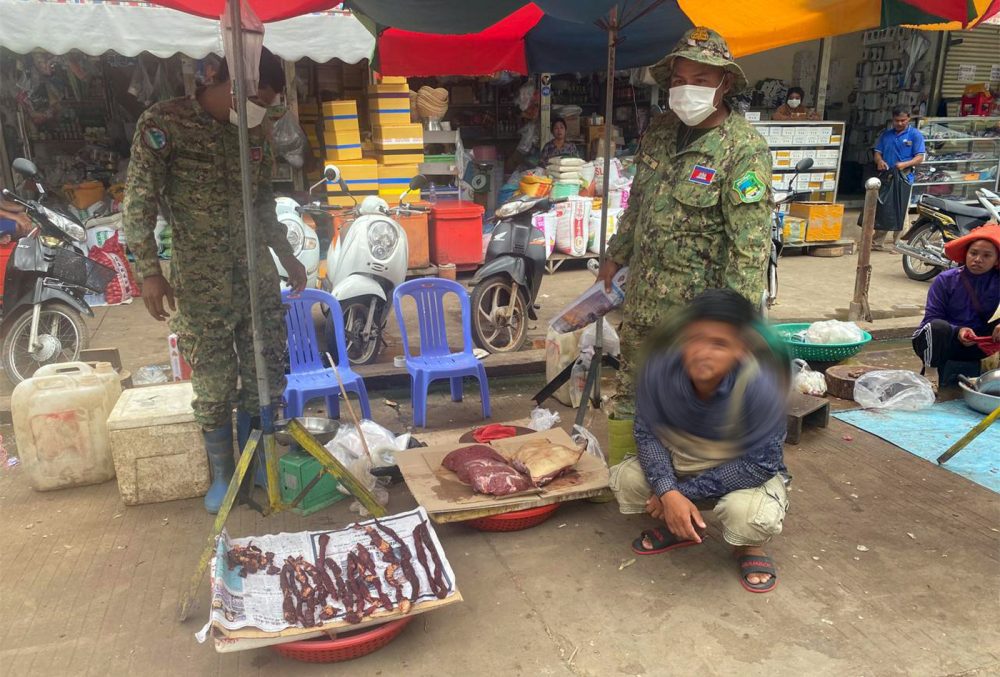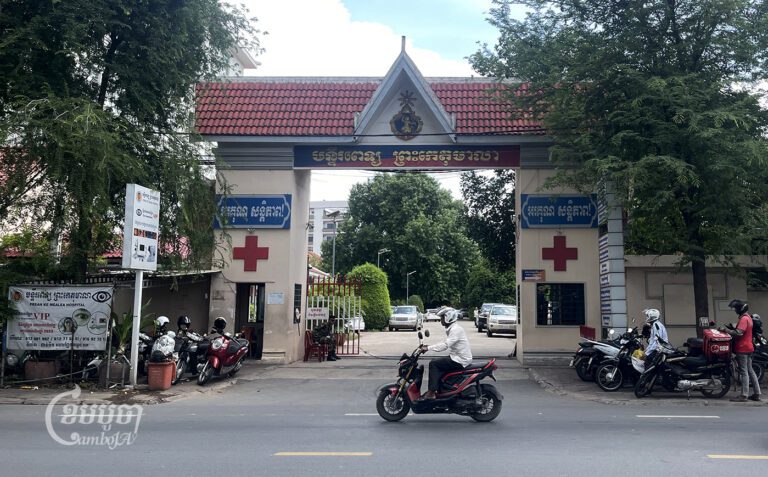Amid a shortage of rangers and with villagers facing financial difficulties, officials said Cambodia’s wildlife continues to face a high risk of poaching.
Sreng Cheaheng, head of the department of environment in Stung Treng, told CamboJA that the selling of illegal wild meat has significantly decreased in the province with education and enforcement. But, he said, poaching continues as people rely on it for their income.
‘’As of today, wild meat selling still can be seen but it is in a small amount compared to before. The authorities work every day to observe where people sell these wild meats. However, it is impossible to completely stop it because it is a part of the income of residents living in this province,” he said.
Cheaheng told CamboJA that arrests have dropped, with just two people arrested for hunting wild meat last year.
‘’There are different types of wildlife that have been hunted but wild boar and deer are on the top of the list,” he added.
Cheaheng said it is hard to stop hunting and deforestation offenses due to the shortage of human resources to patrol. ‘’We sometimes are afraid to patrol at night as those perpetrators have guns and knives. And when we do, we need more rangers to go along,” he said.
‘’There are over 830,000 hectares of protected areas in Stung Treng. This is huge. And we do not have enough rangers to patrol. Therefore, it is hard to stop hunting and deforestation offenses happening in this province.”
In 2021, according to the Ministry of Environment, Cambodia deployed 1,200 rangers (42 of them women) to guard 75 protected areas and biodiversity corridors covering 7.3 million hectares in 21 provinces across the country.
But in spite of the promise of better enforcement, some said the drop in arrests was due simply to wild animals having become so hunted there are now few left.
Hoeur Sethul, former Stung Treng resident who visits frequently, told CamboJA that wild meat sales continue to happen regularly. ‘’People sell those wild meats publicly almost every day in Stung Treng market. But there are no significant measures to stop it. I think the authorities are unqualified to do their job,” he said.
‘’The trend of selling-hunting wild meats has been slowing down not because of the effectiveness of law enforcement of the authorities there, but I think this is because there is not much wildlife to hunt like before.”
Neth Pheaktra, the spokesman of the Ministry of Environment could not be reached for comment.
BirdLife International Cambodia programme manager Bou Vorsak said wild meat consumption remains a critical problem, especially in Stung Treng, Preah Vihear, Kratie, Mondulkiri, Ratanakiri, and Kampong Thom.
‘’I think these six provinces are the targeted place for selling and consuming wild meat. Because we often see specifically in Stung Treng where different wild meat has been sold in the market,” he said.
Trafficking and consumption has left the country’s wildlife in an extremely vulnerable position, say conservationists. Under the direction of the Ministry of Environment and in collaboration with WWF, USAID, WCS, CI, and other development partners, in March launched a campaign to abolish snaring, trafficking, and the market for bush meat and wildlife products while providing livelihood alternatives for would-be poachers.









